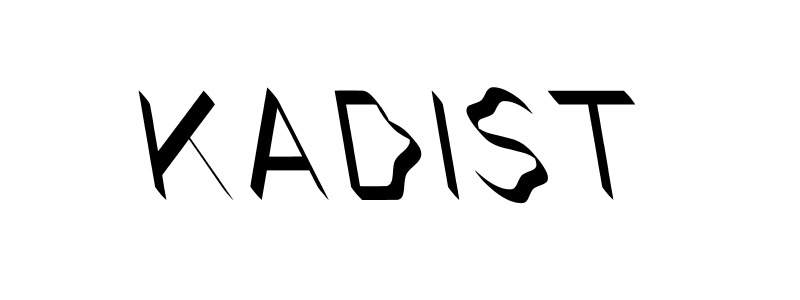Blindseye Arranger (Max)
2013 - Film & Video (Film & Video)
Brian Bress
Blindseye Arranger (Max) (2013) features a greyscale arrangement of rudimentary shapes layered atop one another like a dense cluster of wood block prints, the juxtaposition of sharp lines and acute angles creating an abstracted field of rectangular and triangulated forms composed as if in a cubist landscape. As the video progresses, however, a disembodied hand begins to move these forms, animating a pictorial frame that was previously still. The hand – ostensibly the “arranger” of the works title – functions as a metonym of the artist’s hand, quite literally bringing a motionless work to life. The hand in Blindseye Arranger , though, also signals a shift towards the performative, functioning as a reminder that all works of art are created by a maker’s “hand” and, in such, are never fully separate from the context in which they are made. Bress’s gesture towards interdisciplinarity in his work, by extension, signals an important moment in which questions of medium-specificity give way to more trenchant inquiries into notions of authorship and creative process.
Although originally trained in filmmaking and animation, Brian Bress explores the influence of pictorial traditions on contemporary media-based practices. His single-shot videos utilize painterly effects such as geometric abstraction to create visual compositions that blur presumed boundaries between contemporary media-based work and more traditional disciplines such as sculpture and painting. His work is deliberately processed-based and his videos, by extension, explore how visual motifs “evolve” over time through as a viewer engages with a given object or image. Animated figures and actors – such as disembodied hands – disrupt these seemingly still frames, repositioning these works in the context of film while also suggesting the presence of the artist’s hand. Bress’s videos may seem overtly indebted to creative lineages, and his images frequently border on the surreal. But in gesturing towards past works, his videos signal the emergence of creative practices enabled through technological advancements while also offering a meditation on a durational aesthetics privileged in media-based work.
Colors:
Related works of genres: » american video artists, » american conceptual artists, » artists from los angeles

© » KADIST
Trisha Donnelly
2007Untitled is a black-and-white photograph of a wave just before it breaks as seen from the distance of an overlook...

© » KADIST
Barbara Bloom
1997In the 1980’s, while browsing Parisian fleamarkets, Barbara Bloom stumbled into an anonymous watercolor (dating to around 1960) in one of Paris’ fleamarkets, probably a study made by an interior designer for a bedroom...

© » KADIST
Felipe Dulzaides
2006I Am Cuba— “Soy Cuba” in Spanish; “Ya Kuba” in Russian—is a Soviet/Cuban film produced in 1964 by director Mikhail Kalatozov at Mosfilm...

© » KADIST
Edgar Arceneaux
2006Untitled (Wheelchair Drawing) is a ten-foot photo transfer of the image of a wheelchair with burning embers in its seat...

© » KADIST
Doug Aitken
2009The version of Frontier acquired by the Kadist Collection consists of a single-channel video, adapted from the monumental installation and performance that Aitken presented in Rome, by the Tiber River, in 2009...

© » KADIST
Mary Reid Kelley
2015Kelley’s 2015 portrait of the poet Charles Baudelaire is one of a series of poets, rappers, and other thinkers who have influenced the artist’s ideas about beauty, creativity, and expression...

© » KADIST
Lynn Hershman Leeson
2007Lynn Hershman Leeson’s genre-bending documentary Strange Culture tells the story of how one man’s personal tragedy turns into persecution by a paranoid, conservative, and overzealous government...

© » KADIST
Rachel Rose
2013In the 2013 video work, Sitting Feeding Sleeping , Rose combines footage taken of zoo animals living in captivity with screen images that flicker and flash before us...

© » KADIST
Paul McCarthy
2008Memory Mistake of the Eldridge Cleaver Pants was created for the show Paul McCarthy’s Low Life Slow Life Part 1 , held at California College of the Arts’s Wattis Institute in 2008 and curated by McCarthy himself...

© » KADIST
Trevor Paglen
2017Trevor Paglen’s ongoing research focuses on artificial intelligence and machine vision, i.e...

© » KADIST
Mark Bradford
2012This untitled work from 2012 is a print originally made as part of the Wattis Institute for Contemporary Art’s artist limited edition series...

© » KADIST
Mary Reid Kelley
2010Situated in German-occupied Belgium at the end of World War I, Y ou Make Me Iliad by Mary Reid Kelley focuses on the story of two...

© » KADIST
Félix González-Torres
1992Behind the simplicity and beauty of this untitled photograph of a brilliantly-colored flowerbed by Félix González-Torres are two remarkable stories of love, loss, and resilience...

© » KADIST
John Baldessari
1997In One Must , an image of a pair of scissors, accompanied by the words of work’s title, poses an ominous question about the relationship between the image and the text...

© » KADIST
Cheryl Donegan
2013Fashion is the focus of Blood Sugar , which consists of a video projected onto a vintage vinyl jacket set at torso height on a dressmaker’s dummy...

© » KADIST
Eleanor Antin
1973Comprised of fifty-one photographic postcards, Antin’s 100 Boots is an epic visual narrative in which 100 black rubber boots stand in for a fictional “hero” making a “trip” from California to New York City...




